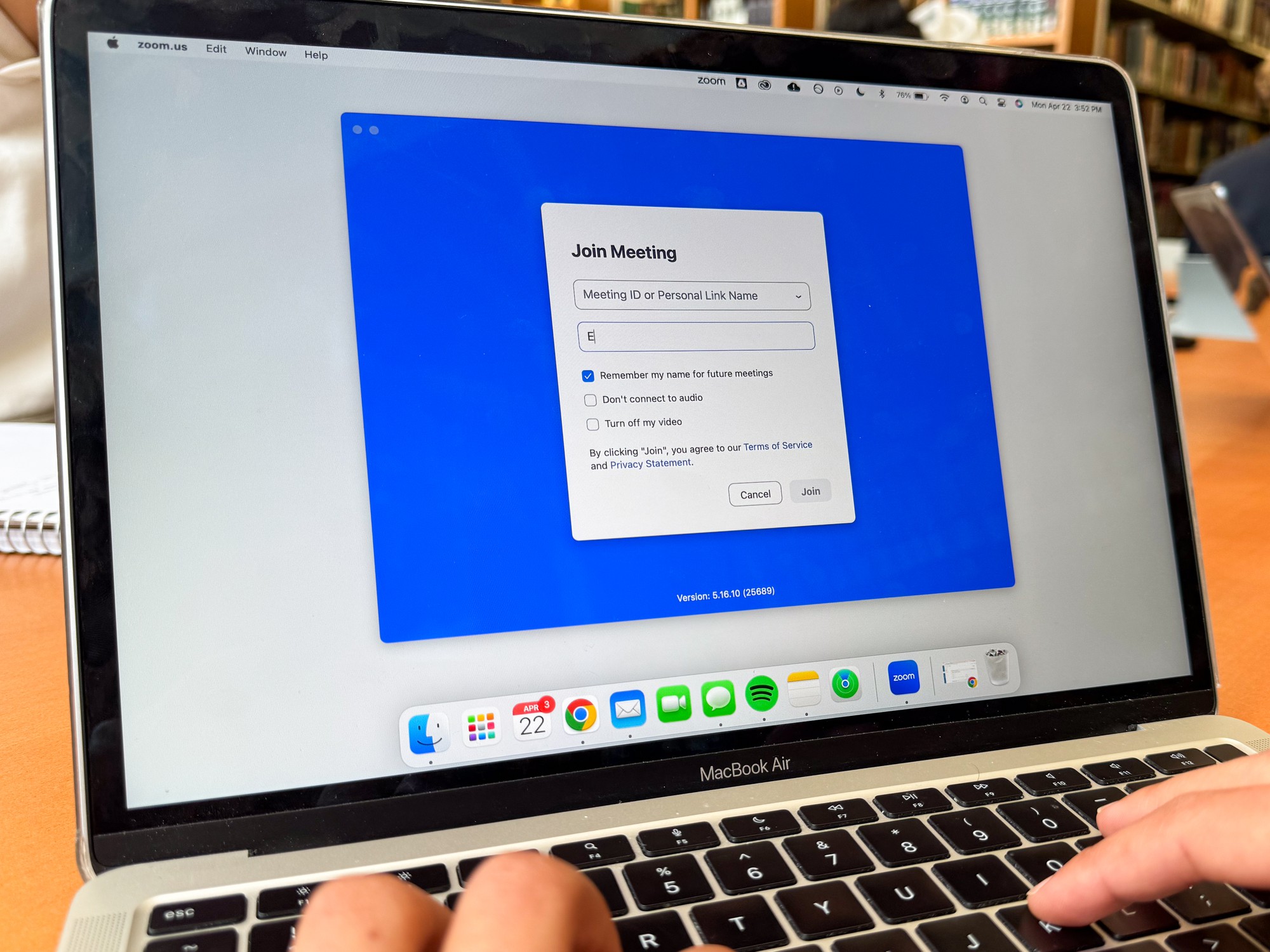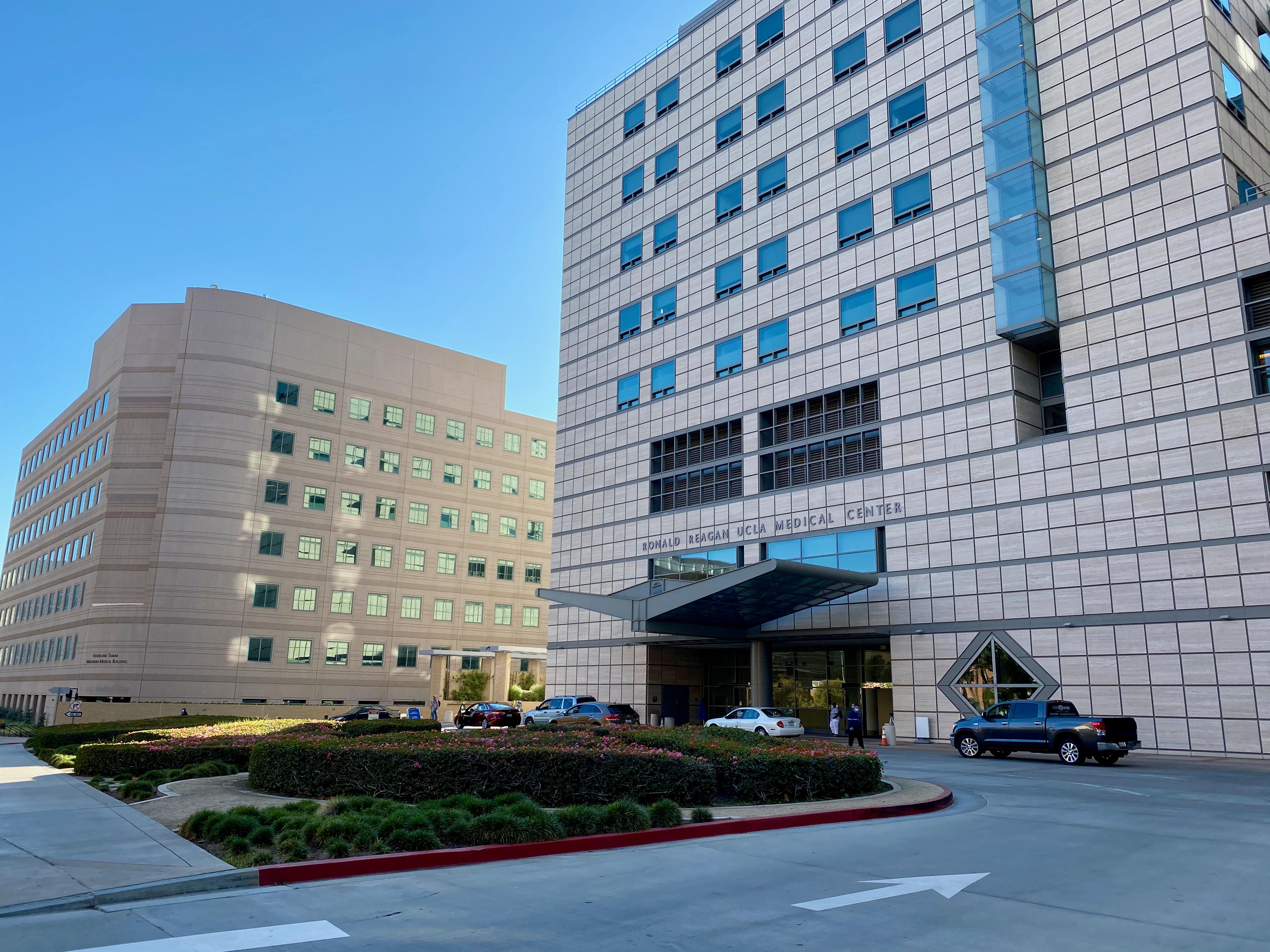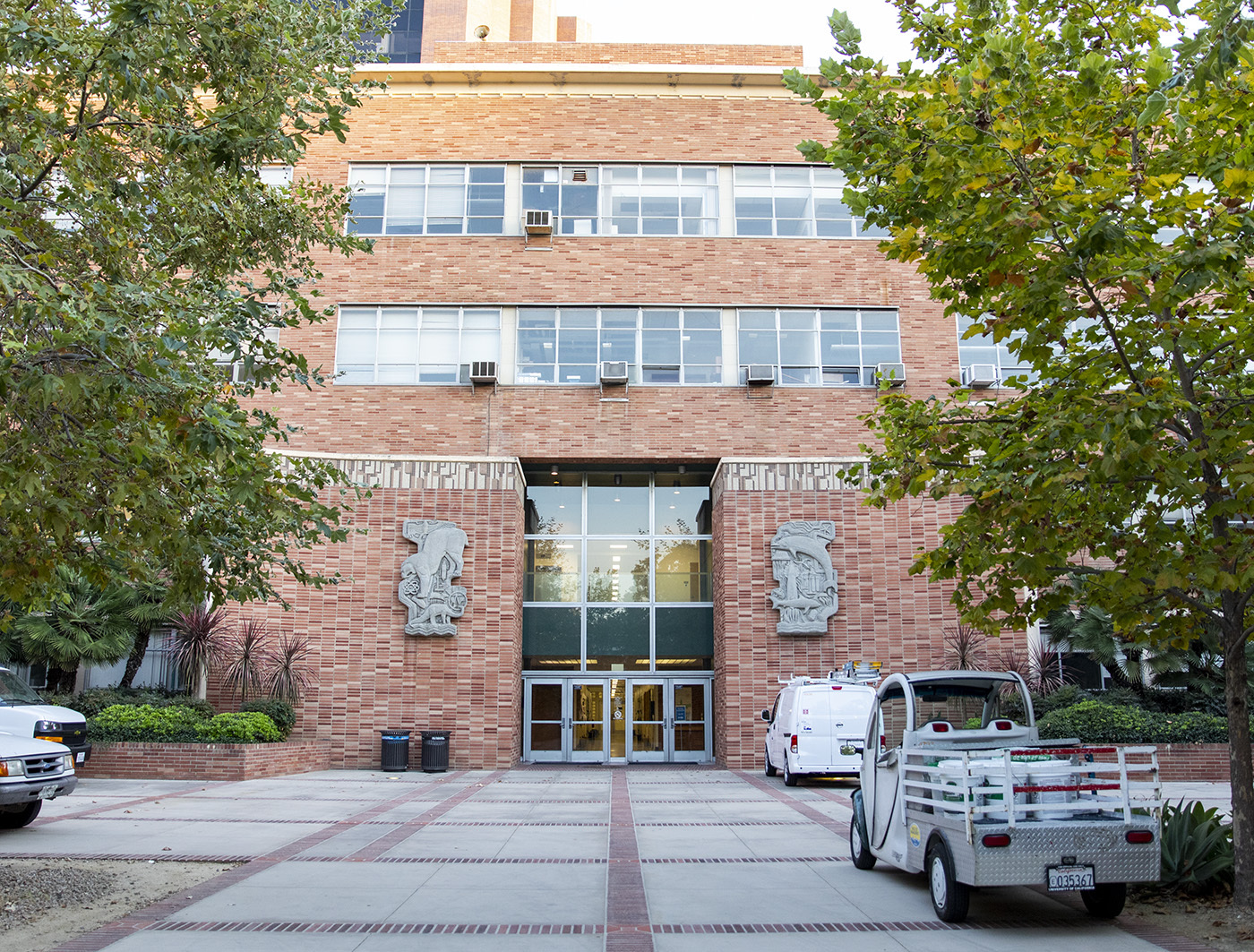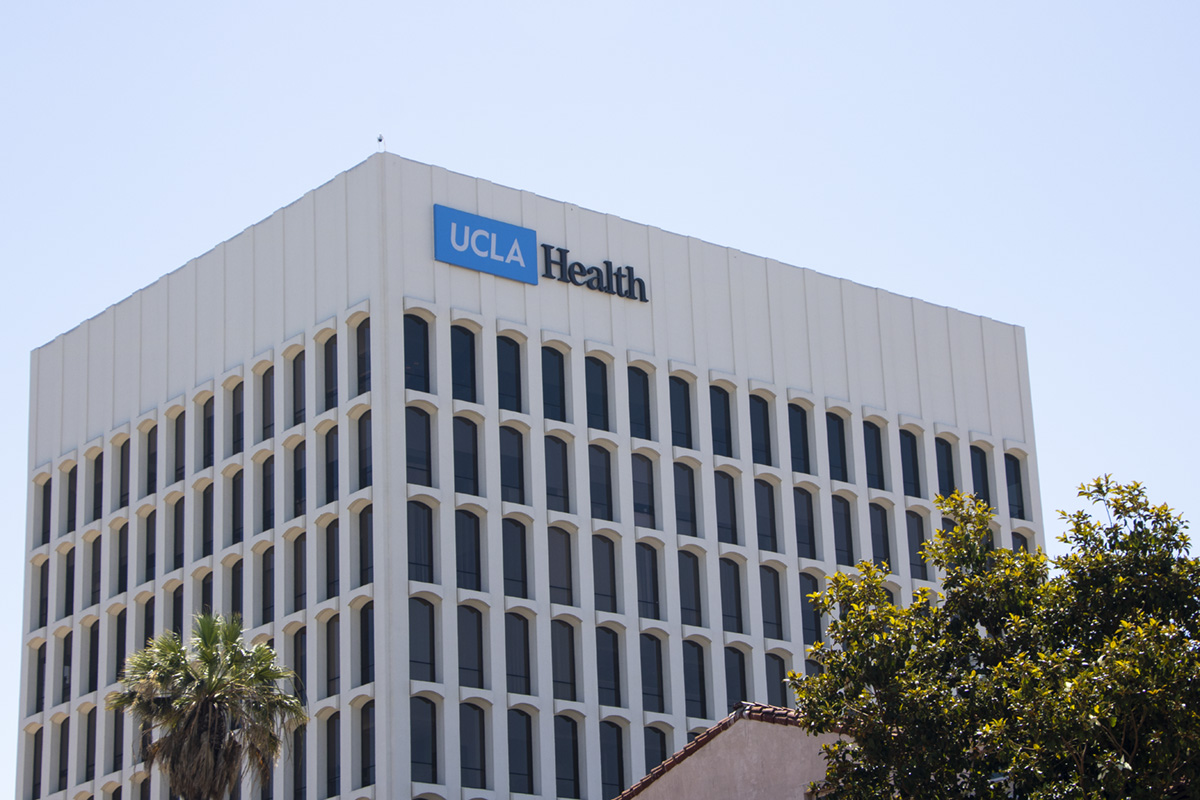Research reveals delaying in-person medical residency visits can reduce inequities

A user logs into a Zoom meeting on their computer. A recent study led by vascular surgery faculty across the country found that restricting in-person visits for medical students going into residency can address some economic inequities. (Myka Fromm/Photo editor)
By Yashila Suresh
April 23, 2024 1:09 p.m.
A team of researchers from around the country found that limiting in-person visits for medical students pursuing vascular surgery only until after they had ranked their residencies could reduce the effects of economic inequities.
Graduating medical students in the United States rank their preferred residency programs every February and await their “match.” With many interviews for the process moved online because of the COVID-19 pandemic, researchers sought to demonstrate the importance of in-person interactions between residency programs and students, as residency is a critical time for students’ educations and lives, said Dr. David Rigberg, the first author of the study.
Prior to the pandemic, almost all residency interviews were conducted in-person, and students are responsible for covering transportation and boarding fees – which can range from $400 to $7,000 in total, according to the Association of American Medical Colleges.
Rigberg, director of UCLA’s vascular surgery training program, said equity has come up as a key issue in the residency matching process. The AAMC has recommended that interviews continue to be conducted virtually, he said, adding that the UC system does not allow residency programs to conduct in-person interviews.
“They (The AAMC) listed a number of reasons, and included in those reasons were combating the bias that’s sort of built into interviews, the implicit bias everyone brings to it,” Rigberg said. “If someone could afford to travel to multiple programs, they would be at an advantage that someone from a lower socioeconomic standpoint would be at a disadvantage from.”
As part of the researchers’ interview-based study, students submitted a survey both before and after they made a site visit to different residency programs, Rigberg said, adding that this data was then compiled to determine the impact of visits on students’ ranking of their residency programs.
He added that as part of the study, students would only visit after the residency program had submitted its rankings of applicants, as a way to remove admissions bias against those who did not choose to visit the program.
Dr. Benjamin Pearce, one of the study’s co-authors, said he joined the study as a way to support the education of the next generation of vascular surgeons. Pearce, who is the director of the University of Alabama at Birmingham’s vascular surgery integrated residency and fellowship programs, said he thought the system set up in the study – where visits were only made after, rather than before, ranking residency programs – was more fair, as students were not forced to visit the program for the sake of their application.
“I personally don’t think it should be on the financial onus of the young person to do so (to make visits),” Pearce said. “The thing I liked best about the way we set it up is that I think it really can provide a little bit more of an equitable process for people.”
One of the main challenges while conducting the study was opposition from people who wanted interviews fully in-person, Pearce said. Despite that, he said he still believes the study’s design was ideal, as it allowed students to visit programs without applying too much financial pressure.
Dr. Joseph Chitwood, a vascular surgery resident at the University of Alabama at Birmingham, said while applying to programs, he attended one interview in person, while the other 20 were conducted virtually.
“I personally enjoyed the virtual setting a lot,” he said. “I felt like program directors, as a whole, did a good job of putting together PowerPoints which highlighted unique aspects of their programs.”
However, Chitwood added he also appreciated how some programs allowed students to visit the program in-person for two or three days as a supplement to the virtual interview process, he said.
Although he liked the virtual format, Chitwood said it can dilute the match experience and make the overall process more challenging for some applicants. Some applicants chose to apply to more programs because they could attend more interviews, he added.
Chitwood added that finances are not the only limiting factor for students applying to different residency programs.
“A lot of people have families, have other obligations that keep them tied down to their place of work or their medical school that doesn’t afford them the time to set aside to travel to these places,” he said.
Ultimately, Rigberg – a professor of vascular surgery – said the data they found and the discourse around the topic supported what he initially assumed. He added that residency is a formative time for many students, and he hopes more programs allow students to gauge a more personalized outlook during the interview process.
“The reality is, the environment we’re in – it’s not going to go back,” he said. “We’re trying to figure out a way to make the best of the situation we’re currently living in.”






